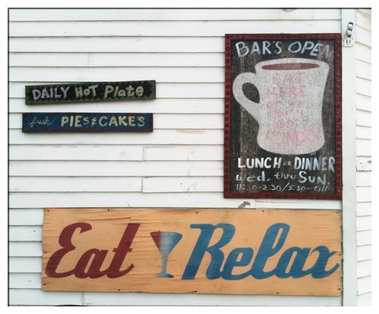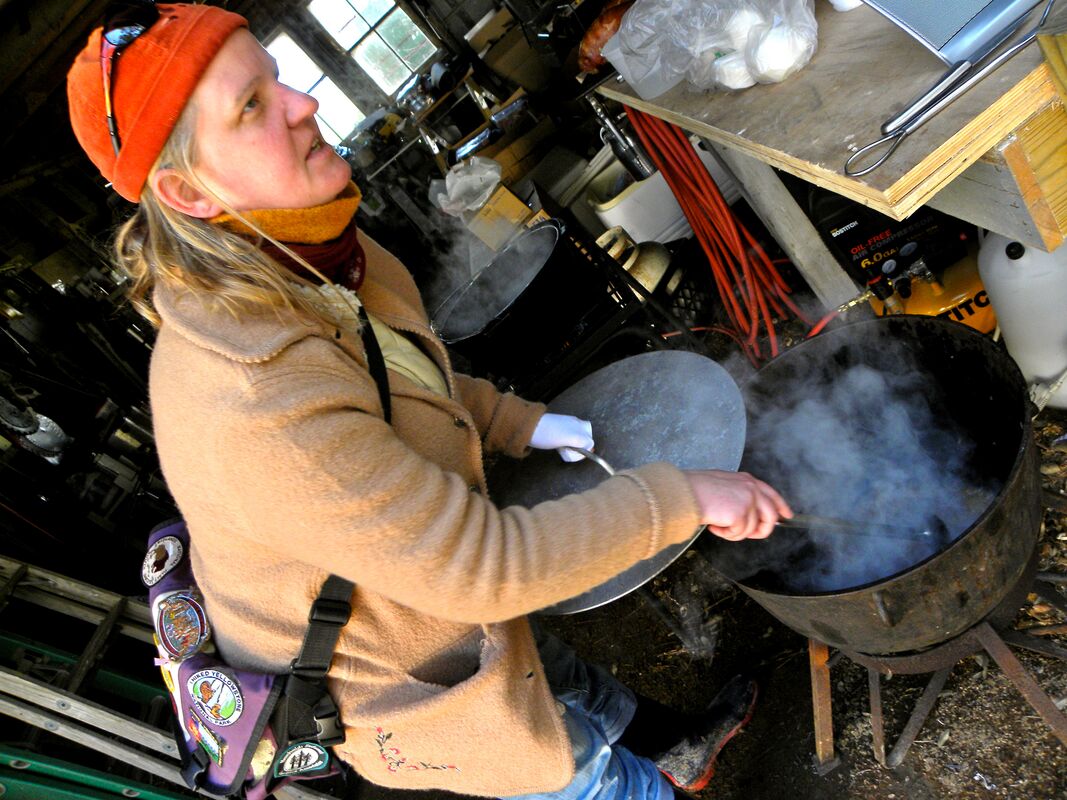Research Agenda
Claire's research agenda focuses on several areas:
Claire is not only a chef, she is also a trained ethnographer who combines in-depth fieldwork with theoretical, emergent analysis. Claire's work integrates audio, video, and other ethnographic tools with written narrative and analysis. Claire is a scholar practitioner who envisions research as part of her own process of professional inquiry.
She has published numerous articles and chapters on both areas of research. Claire regularly presents her work at academic and popular conferences and venues. She also has extensive teaching experience not only in these content areas, but also in the practice of engaged ethnography.
- Food systems and sustainable communities.
- Leadership and change.
- Disaster and recovery events.
- Meaning making in critical change events.
- Social and emerging media as tools of communication in critical change.
Claire is not only a chef, she is also a trained ethnographer who combines in-depth fieldwork with theoretical, emergent analysis. Claire's work integrates audio, video, and other ethnographic tools with written narrative and analysis. Claire is a scholar practitioner who envisions research as part of her own process of professional inquiry.
She has published numerous articles and chapters on both areas of research. Claire regularly presents her work at academic and popular conferences and venues. She also has extensive teaching experience not only in these content areas, but also in the practice of engaged ethnography.
Recent Work: Recipes of Resolve, Food and Meaning in Post-Diluvian New Orleans

In 2005 the city of New Orleans experienced catastrophic flooding as a result of the failure of the federal levee system following Hurricane Katrina. This was an immediate disaster that evolved into a longer-term crisis as the city, state, and national government struggled to respond to the event. This study focuses on one part of managing crisis: meaning making. Specifically, the study investigates meaning making within the food community of New Orleans, asking the questions: is food a way for individuals and groups to make meaning following critical change events such as the failure of the federal levee system in New Orleans, and if so, how?
The study employs tools of ethnographic inquiry and participatory action research, such as: case study, interviews, field notes, photography, recipes, and multiple media, to suggest an approach to investigating meaning making within food systems affected by critical change events. The sample of the study draws on a wide spectrum of experience and perspective on food in the region. This spectrum ranges from restaurateurs and others who go back multiple generations in the New Orleans food community and new comers, including two groups of recent immigrants, to it.
This study finds that despite these differences, there are four common discourses that leaders and others in this community use to think and talk about food in relationship to critical change: culture, ecology, economics, and politics. The study embodies an approach to food studies that goes beyond that field’s dominant nutrition versus culture paradigm, and recommends an approach that engages a more nuanced and diverse understanding of the role food plays in peoples lives.
The discourses this study reports may serve as a framework for investigating the meaning of food in other locales and contexts of change. Finally, this study illustrates the emergence of formal and informal leadership in the face of critical change. In this way, the study moves beyond the dominant attention given to people in formal positions of authority to focus on the leadership of people in their resolve to make meaning out of crisis.
You can read the entire dissertation at OhioLink's Electronic Thesis & Dissertation Database.
Comments From Others...
"Reading this dissertation catapults one into an Emerson greeting a Whitman at the beginning of a great career. I felt I was reading a scholar's gift to community, in how it identifies the questions, the topics, the approaches." Dr. Barbara Mossberg
"The sophisticated methodology, combining a range of ethnographic methods, facilitated the emergence of a multidimensional picture of meanings attached to food. A solid theoretical frame holds the dissertation together. Theory is interwoven throughout the consecutive chapters, highlighting how different dimensions of how people talk about food systems. This is visible in the eloquent quality of the narrative." Dr. Philomena Essed
"As with all things Claire, it is complex in substance and format but well worth the effort to climb the learning curve." Dr. Richard A. Couto
"The sophisticated methodology, combining a range of ethnographic methods, facilitated the emergence of a multidimensional picture of meanings attached to food. A solid theoretical frame holds the dissertation together. Theory is interwoven throughout the consecutive chapters, highlighting how different dimensions of how people talk about food systems. This is visible in the eloquent quality of the narrative." Dr. Philomena Essed
"As with all things Claire, it is complex in substance and format but well worth the effort to climb the learning curve." Dr. Richard A. Couto

